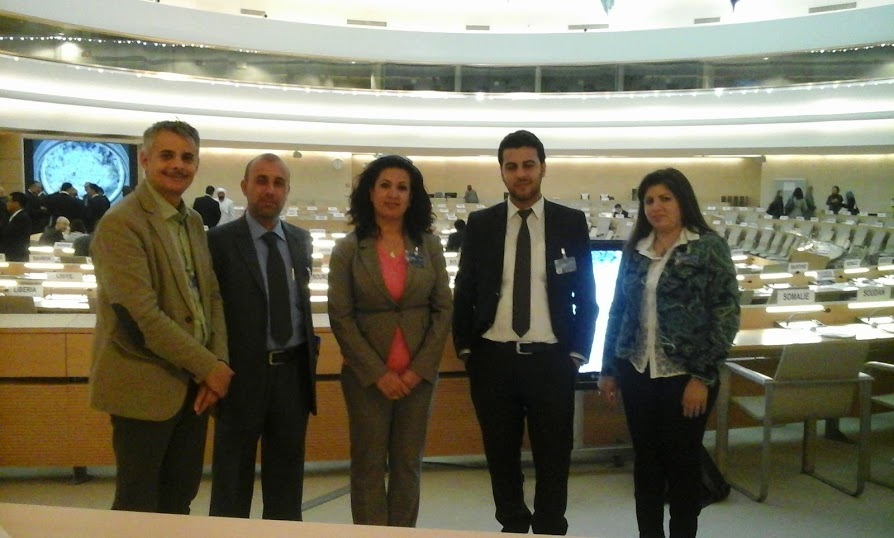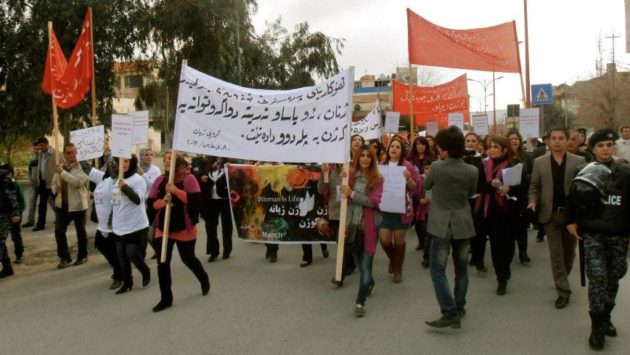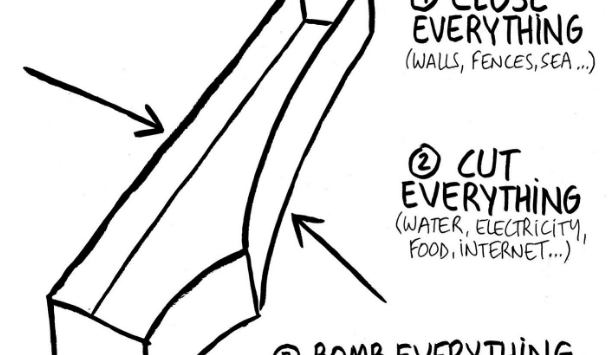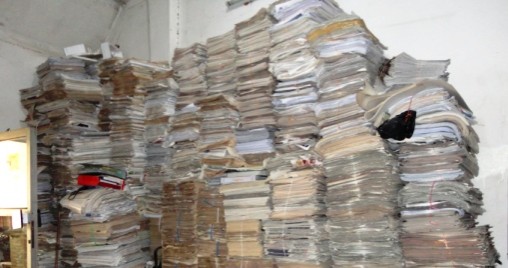Between the Laws Inherited from the Era of Dictatorship and Legislation Seeking to Restrict Freedom of Expression and the Press in Iraq, The Reality is Not Consistent with the Principles of Democracy
Yasser Salem
Executive Director of Press Freedom Advocacy Association in Iraq
Paper prepared for the ICSSI Conference in Oslo, October 2014
Introduction
Between the laws still in affect that were passed during the previous era of dictatorship (which do not take into account the principles of democracy) and the violations and attacks being carried out by different parties, including the Iraqi authorities, Iraqi activists and journalists now live under very difficult conditions that limit their activity and expose them to many threats.
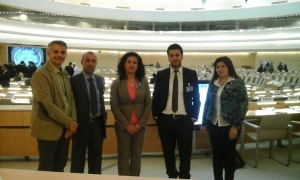
In the ten years following the change in 2003, activists worked hard to promote and defend freedom of expression in order to create a legal environment that protects them from abuse, but repeatedly they faced repression and marginalization by the powerful political parties. This does not mean that freedom of expression in Iraq is completely non-existent, but the space for freedom that was created after 2003 was not the result of normal developments that arise within democratic systems; it was instead the result of political, institutional and security chaos in the country.
First: the reality of freedom of expression after the events of June 10
After the takeover of the city of Mosul by militants from the “Islamic state”, and then the carrying out of numerous attacks that left these militants in control of large swaths of Iraqi territory, the Association for Defense of Freedom of the Press, and other organizations, documented a dramatic increase in violations of freedom of expression during the period between June 10 and November 1, 2014.
Iraqi journalists, activists, and regular civilians all experienced difficult situations. They were, and still are, targeted by terrorist organizations. A number were kidnapped, and those who were not able for different reasons to escape outside their area, were then tortured and killed. The insurgents even resorted to kidnapping some journalists and activists, bombing or seizing their houses, and confiscating all their belongings.
The Press Freedom Advocacy Association in Iraq received on 14 September 2014 a statement issued by Daaesh calling on its members in the governorates of Nineveh and Salahuddin to kill journalists and the confiscate their property because they were “damaging the image of the Islamic state for the benefit of the Iraqi government”. Along with journalists, Daaesh also targeted other civil society activists, for torture or killing. In fact journalists and activists are facing threats not only from Daaesh but from other armed groups and militias that are now increasingly active, because the government allows them to act with full impunity.
There have been numerous confirmed and unconfirmed reports of such acts against journalists and media workers aimed at preventing them from covering particular events, or criticizing the armed activity; it is a clear policy of intimidation. Even some journalists who work in the provinces and safe areas (for example, the southern provinces) have been forced to leave their profession, or to move from one media organization to another, in order to protect their lives and the lives of their families. Most of these journalists do not speak openly about the attacks and violations against them, for fear of persecution. Some journalists ultimately chose to migrate out of the country.
Second: many different groups are carrying out violations against journalists
Freedom of the press in Iraq is under attack from multiple sources: political parties and the government, security forces and militias, terrorists, and even foreign powers. All contributed to the increasing level of abuse.
During 2014, before the events of the tenth of June, 24 journalists from different parts of Iraq had been martyred. The provinces of Nineveh and Anbar had the largest number of victims.
The clearest example of a violation of journalists’ rights committed by militias attached to the government was the case of the newspaper “New Morning”, which was closed down by attacks on its headquarters that included the detonation of three explosive devices. “New Morning” had published a cartoon image of the Supreme Leader of the Islamic Republic of Iran, Khamenei, which the militias considered “insulting”. Ahmed al-Rubaie, the cartoonist who created the image, received serious threats and had to leave Baghdad. Due to stress he was hospitalized in Erbil, Kurdistan where he died on 12 March 2014.
The Press Freedom Advocacy Association believes that the Iranian authorities may have played a role in al-Rubaie’s death. The hospital where he died has refused to make public any of his medical records, leaving many questions surrounding the circumstances of his death.
Recently, the phenomenon of attacks on journalists and media workers by the bodyguards of politicians and government officials has again become common. The most prominent case was the killing of Mohammed al-Shammari Bdiyoa, the director of Radio Free Iraq’s Baghdad bureau, at the hands of a presidential guard on 23 March 2014.
Third: press coverage
Political discrimination continues in dealings between the Iraqi authorities and the media, regarding permission to cover events. A decision, which was released a few years ago by the Office of the Commander in Chief of the Armed Forces (now dissolved), prevented any media outlet from covering activities in the field without the authorization of the leaders of the operations in the provinces. This restriction is a great hindrance to the work of journalists.
Authorizations were granted only to those media organizations that promoted government perspectives and policies; those that opposed the government were denied permission to go into the field. Dozens of journalists were harassed, assaulted or arrested as a result of this discriminatory policy.
Iraqi security authorities also prevented many journalists from covering ongoing military operations in areas in the north and west of the country. Only reporters who were close to the prime minister’s office were allowed to accompany the security forces and cover military action. Reporters, of course, criticized this policy, but the government never offered any explanation of how it made its decisions.
Fourth: there is a new prime minister, but government press policies are still the same!
Although we feel good that the al-Maliki government has changed, as a result of the parliamentary elections in April of 2014, it is not clear if the al-Abadi government will change its policies concerning freedom of expression and the media. The Association believes that although the names and faces in the government have changed, the approach to freedom of the press and the previous restrictions on freedom of expression will probably continue because the forces that formed the new government are the same forces that ruled the country in recent years.
The new Prime Minister al-Abadi, is a leader in the same party that the former Prime Minister and current Vice President al-Maliki belongs to. A small number of secular and democratic leaders (who traditionally support freedom of expression) were elected to the Council of Representatives, but their strength and impact will be limited by the force of political Islam, which has greater power to make political decisions.
Fifth: the legal framework continues to threaten freedom of expression!
After 2003, many of the old regime’s laws restricting freedom of expression and freedom of the press were left in place by the Iraqi authorities. The so-called “publishing crimes articles” in the Iraqi Penal Code No. 111 of 1969, the press law, the Iraqi Journalists Union law, the law of the Ministry of Information for the year 2001, are leading examples of these restrictions. All of them present a serious threat to freedom of expression and freedom of the press in Iraq.
Rather than cancelling these laws, which conflict with both the Constitution, international human rights conventions signed by Iraq, and internationally recognized principles of human rights, particularly the rights to freedom of expression and freedom of the press, the government and the Council of Representatives have resorted to pushing for new laws aimed at suppression of these rights. The so-called “law of the rights of journalists”, passed by parliament in August of 2011, presents a great challenge and a real threat to freedom of the press, in particular, and freedom of expression in general. This new law contains five articles that reactivate all the previously mentioned restrictive laws, such as the “publishing crimes articles”.
Sixth: efforts to protect freedom of expression and the press
I have encouraged the Association for the Defense of Press Freedom, as well as other organizations active in Iraq, to address the difficult reality of freedom of the press. There are a number of campaigns and activities to protect these freedoms that can be summarized as follows:
- Monitor violations against journalists, document, present, and publically denounce them. Our lawyers are working to legally prosecute violators.
- Provide legal defense for journalists who are facing court charges relating to coverage of events and the dissemination of information. Work to clear them of arbitrary charges.
- Continue to reform the legal environment for freedom of journalists’ work, especially to cancel or amend legislation that is inconsistent with the Iraqi Constitution and international law, and to prevent new legislation that undermines the freedom of expression.
- Conduct seminars and workshops in all governorates of Iraq on a variety of topics to educate journalists about the risks they may face in their work, to anticipate the difficulties they and their institutions may encounter, and to coordinate efforts to address them.
- Train journalists concerning press coverage, preparation of reports, and dealing with social media.
- Coordinate with civil society organizations involved in defending freedom of expression.
- Conduct studies and research on freedom of journalistic work; issue case reports.

